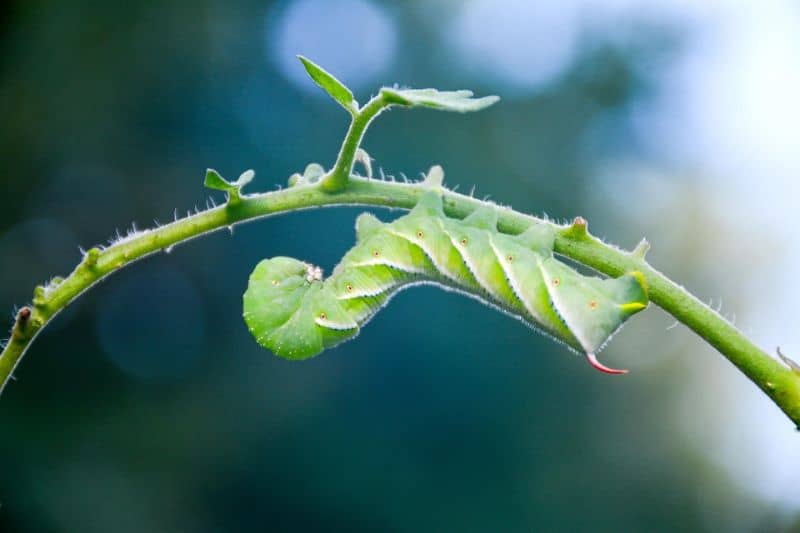What eats hornworms? You might be surprised to learn that there are quite a few predators that enjoy this tasty caterpillar. From birds and lizards to spiders and wasps, there are plenty of creatures that love to feast on hornworms. So if you’re looking for an effective way to get rid of hornworms in your garden, consider enlisting the help of some of the hornworm predators on this page.
What Eats Hornworms
Hornworms can be eaten by a variety of animals, including braconid wasps, Trichogramma wasp, rodents, birds, amphibians, and reptiles will all eat hornworms if given the opportunity.
What Eats Hornworm Caterpillars – Hornworm Predators
Braconid Wasp – Cotesia congregata
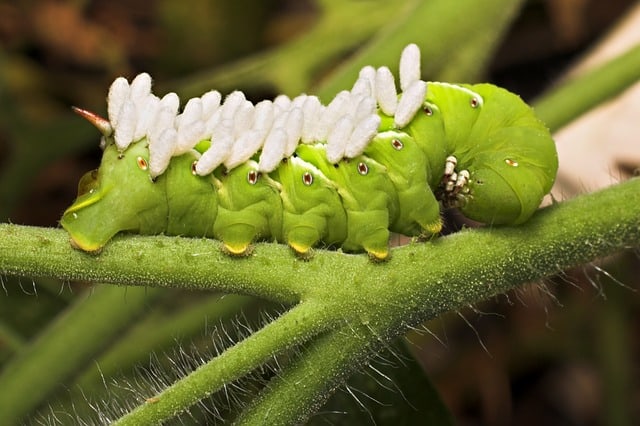
The Braconid Wasp Cotesia congregata parasitizes hornworms, and unlike most parasitic wasps, they do not lay their eggs inside of the hornworm. Instead, they lay them on the outside of the caterpillar, and the larvae then burrow into the caterpillar to feed.
If you see a hornworm covered in Cotesia congregata eggs, leave it alone since it will soon fall prey to the Cotesia congregata larvae. And once they hatch, feed, and mature, the infected hornworm will help spread more of these beneficial insects throughout your garden.
Trichogramma wasp
Trichogramma wasps (Buy Online) are the most common predators of hornworms, and they often lay their eggs inside the hornworms. The larvae then hatch and eat the hornworm from the inside out.
Paper wasp, Polistes spp
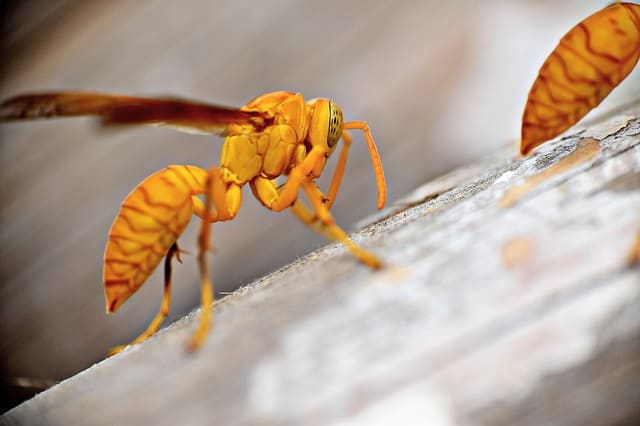
Paper wasps are predators that feed on a variety of insects, including caterpillars (hornworms), flies, and spiders. They hunt by hovering near their prey until they are close enough to sting it, paralyzing it with their venom. They then take the prey back to their nest to feed their young.
What Eats Hornworm Eggs
Ladybugs
Ladybugs (Buy Online) are one of the natural predators of the Tomato Hornworm, and they feast on the eggs deposited by the hornworms. So while these little critters mainly eat aphids and other small-bodied insects, they will also help keep populations of hornworms in check.
Lacewings
Lacewings (Buy Online) are one of the insects that eat hornworm eggs. They’re especially fond of the eggs of tomato hornworms, which is good news for gardeners since these pests can do serious damage to tomatoes and other crops. Best of all, lacewings are harmless to people and other animals, so they make a great natural predator for pest control.
What Animal Eats Hornworms
Mice
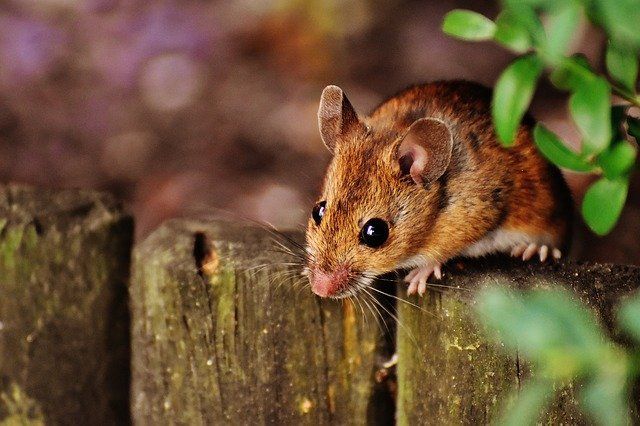
Mice are small, nimble creatures that can easily sneak up on a hornworm and snatch it up for a quick meal. Given their size, mice can eat quite a few hornworms in a single day – making them one of the most active predators of this pesky caterpillar.
Shrews
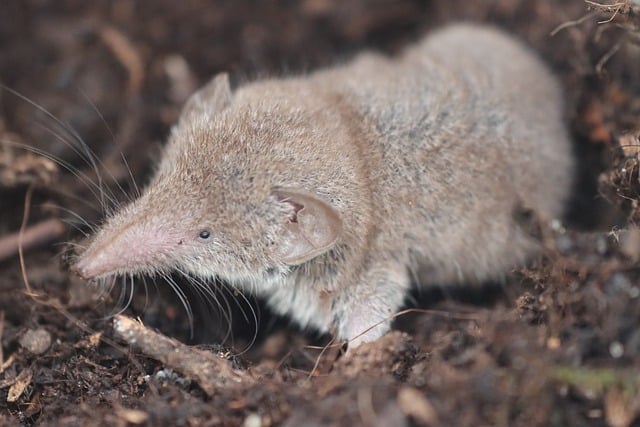
Shrews are small rodents that eat a lot of insects, including hornworms. They’re especially fond of young, tender hornworms and will strip them clean of their flesh in minutes. So if you have shrews in your yard, you’re likely to see fewer hornworms in your garden.
What Birds Eat Hornworms
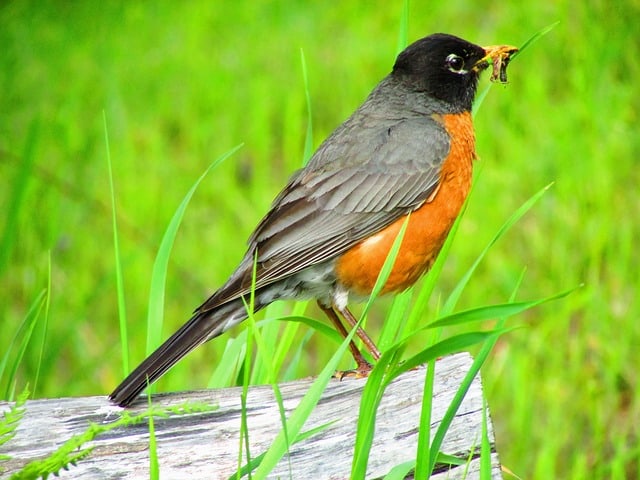
There are many birds that enjoy eating hornworms, including jays, wrens, and robins. Hornworms make for a tasty treat for these feathered insect predators, as they are always on the lookout for a good source of protein and other nutrients.
If you have hornworms in your garden, you might even see some of these birds swooping down and picking hard-to-see hornworms off your plants’ thanks to their keen vision.
What Amphibians Eat Hornworms
Frogs
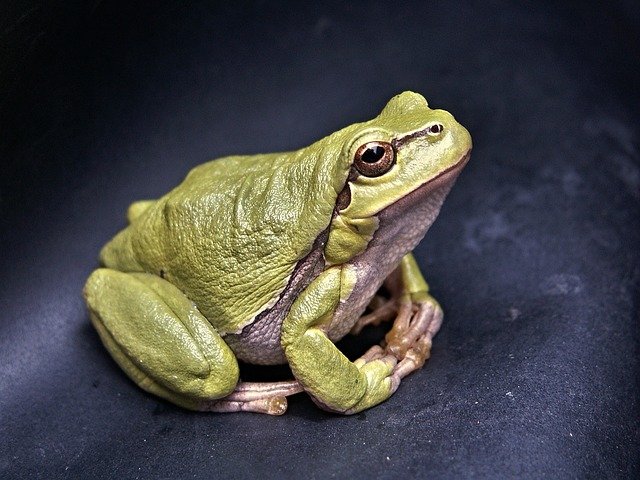
Some frogs will eat hornworms, and they are a good food source for these predators because they are abundant and provide a lot of nutritional value.
Frogs typically swallow them whole, which means the hornworms are consumed intact with their tough spines and all.
Newts
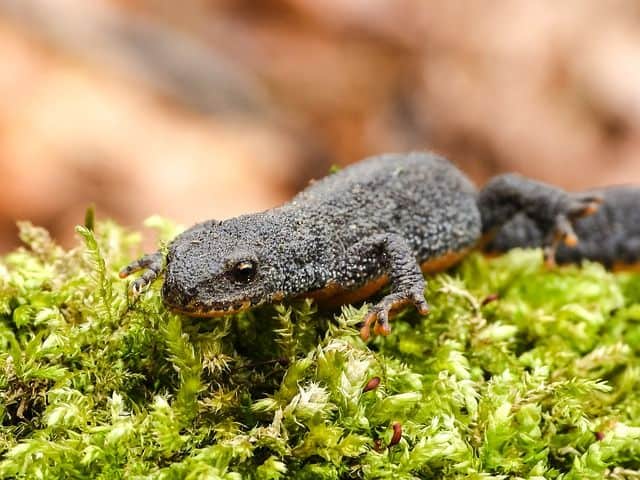
Newts eat small invertebrates, such as earthworms, slugs, and other soft-bodied insects. They are also known to eat the larvae of mosquitoes and other harmful insects.
Hornworms make a good meal for newts when they wander near their habitat since they are large and slow-moving.
Hornworm Control Organic
Hornworm Pesticides
There are a few different hornworm pesticides that you can use. Bacillus thuringiensis (Bt) is a natural bacterium that is toxic to caterpillars, including hornworms. It is available in organic form and can be sprayed on leaves or fruit trees to kill caterpillars. Other chemical pesticides, such as spinosad or carbaryl, will also kill hornworms.
Hornworm Natural Control
Manual Removal
The best way to control hornworms is by manual removal. Pick them off your plants and drop them into a bucket of soapy water. You can also try using traps or barriers, but hornworms are pretty good climbers, so they may not be 100% effective.


